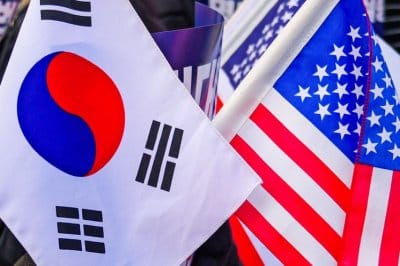
Sept. 5 (UPI) — The United States, Japan and the Republic of Korea came together in Seoul this week, then in Tokyo Friday, for two Trilateral Quantum Cooperation meetings, the State Department said.
The meetings were to recognize the value of trilateral cooperation to strengthen and secure emerging technologies, a press release said. Experts from government and industry met to share best practices and discuss how to protect quantum ecosystems from physical, cyber, and intellectual property threats.
“Our trilateral partnership helps ensure Americans can benefit from the breakthroughs in quantum computing that have the potential to reshape the global balance of power, spark entirely new industries, and revolutionize the way we live and work. These workshops highlighted the growing importance of trilateral cooperation in safeguarding innovation and strengthening the quantum ecosystem, which has the promise of increasing human flourishing and the economic prosperity of Americans and our partners,” said a press release from the State Department’s spokesperson.
In August, South Korea’s President Lee Jae Myung reflected on the partnership after having met President Donald Trump.
“The golden era is yet to come, not because we lack something, but [because] possibilities are endless,” Lee said, describing future cooperation.
He said Japan can’t be left out of this equation, as trilateral cooperation among Seoul, Washington and Tokyo will be essential to address North Korea and drive technological innovation.
Likely to help in quantum computing is new deputy secretary of the Department of Commerce Paul Dabbar. He was the president and CEO of Bohr Quantum Technology before his Senate confirmation. He led the development and deployment of emerging quantum network technologies while at Bohr.
North Korea announced in 2019 that it intends to adopt quantum computing for economic development. NK Economy reported quantum computers are being highlighted in the Korean Workers’ Party newspaper Rodong Sinmun.
Quantum computing and its lower toll on the power grid — relative to supercomputers — could hold appeal for North Korea.
Rolling blackouts and power outages are common in the country, according to defectors and former residents of the country.